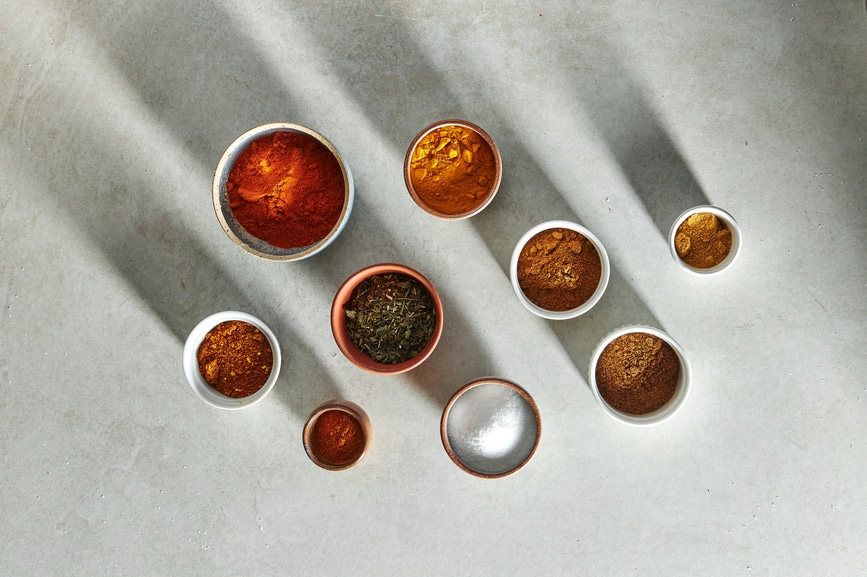Increasing the seasoning on your food can not only spice up the flavor, it may also help lower your blood pressure.
In a recent study, scientists focused on how food is seasoned and how that affects blood pressure. The research, published in The American Journal of Clinical Nutrition, reported that consuming herbs and spices lowered blood pressure, at least temporarily.
“I am not surprised,” Kristin Kirkpatrick, MS, RDN, a nutritionist at the Cleveland Clinic Wellness Institute, said. “Herbs and spices are high nutrient-dense plants with compounds that have been found in previous studies to improve health. Additionally, utilizing herbs and spices in place of salt can help with blood pressure as well.”
There are hundreds of different spices in stores. How do you know which to use?
“The study looked at a blend of 24 herbs and spices in various combinations, so it’s hard to know which were the most powerful at lowering blood pressure. I recommend a few of the spices as a starting point because they are easy to use, versatile, and tasty,” said Kanchan Koya, Ph.D., a nutritionist trained at the Institute of Integrative Nutrition in New York City.
“The spices to begin incorporating in your diet are cinnamon, coriander, ginger, cumin, garlic, paprika, cardamom, thyme, oregano, and rosemary,” she said. “These are packed with anti-inflammatory and antioxidant properties, which may also benefit the heart and overall health.”
Adding herbs and spices to your diet is a good start, but that alone is not enough to lower blood pressure and improve your heart health.
“Reducing or eliminating sugar and refined carbohydrates is a powerful, evidence-based way to lower blood pressure.”
“While too much salt can negatively affect cardiovascular disease risk, too much sugar can also increase blood pressure. The good news is that some of the spices mentioned previously, such as cinnamon and cardamom, can add a sweet, dessert-like taste to dishes without the need for added sugar,” said Koya.
Source: Healthline







